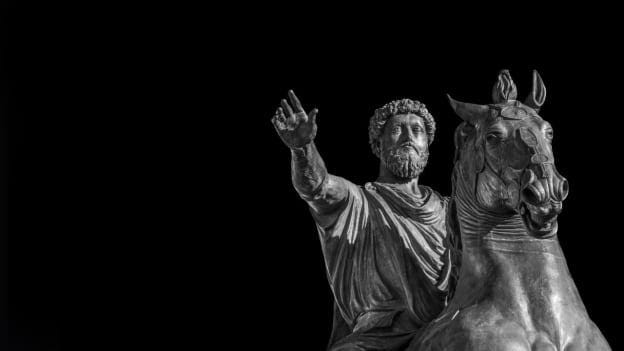Think, Laugh, Cry #15
Absolute power corrupts—but one man proved it doesn’t have to. What made Marcus Aurelius the rare exception to history’s rule?
THINK
“How many of you would fail to disgrace yourself?” Dr. Michale Sugrue
The phrase "absolute power corrupts absolutely," coined by Lord Acton in the 19th century, encapsulates a timeless warning about the dangers of unchecked authority.
It suggests that when a person or group acquires limitless power, moral constraints tend to erode, and corruption becomes inevitable.
History offers countless examples that reinforce this idea, from emperors and dictators to corporate magnates and religious leaders who, once elevated beyond accountability, succumb to greed, cruelty, and authoritarianism.
At the heart of this concept is human nature.
Power can be intoxicating; it can feed ego, justify unethical decisions, and foster a belief in invincibility.
Without systems of checks and balances, even the most well-intentioned leaders may begin to prioritize self-preservation and control over justice and truth.
What begins as a desire to serve can morph into a need to dominate.
Historical figures like Adolf Hitler, Joseph Stalin, and Mao Zedong are often cited as extreme embodiments of this principle.
Each rose to power with broad support and a promise of national transformation, but once absolute control was established, dissent was silenced, and atrocities followed.
These regimes demonstrate how absolute authority often leads to the suppression of civil liberties, mass surveillance, and violence against opposition—all justified in the name of order or progress.
The same pattern can appear in smaller contexts—within corporations, cults, or even families—where a lack of oversight allows abuse to thrive.
That is why democratic institutions, free media, and separation of powers are so crucial.
They exist not just to facilitate governance, but to prevent the concentration of authority in the hands of the few.
Ultimately, the idea that "absolute power corrupts absolutely" serves as both a historical lesson and a moral imperative.
It reminds us that power must be limited, questioned, and shared to preserve freedom and justice.
Without accountability, even the noblest intentions can lead to destructive ends.
And yet, with all that said, history presents at least one profound exception—a ruler who held absolute power and yet actively resisted the temptations it brings.
That exception is Marcus Aurelius, Roman Emperor from 161 to 180 AD.
Despite having complete authority over one of the most powerful empires in history, he led a life grounded in Stoic discipline, humility, and self-examination.
His reign challenges the apparent inevitability of Lord Acton's warning—not because the principle is flawed, but because Marcus Aurelius, through extraordinary philosophical devotion, overcame what nearly all others could not.
Marcus Aurelius stands as a rare figure in the historical record: a philosopher-king who did not exploit his absolute authority for personal indulgence or authoritarian control.
Instead, he viewed power as a burden and a responsibility, not a privilege. His personal writings, compiled in Meditations, remain a profound testament to his inner life and moral struggle.
These writings were never meant for public eyes; they were exercises in private reflection, written to remind himself daily of how to remain just, rational, and restrained amid overwhelming power and responsibility.
Dr. Michael Sugrue, in his widely praised lecture "Marcus Aurelius' Meditations: The Stoic Ideal", emphasizes how rare and invaluable this text is.
So what makes Marcus Aurelius different? What allowed him to resist the temptations that have undone nearly every other powerful figure in history?


